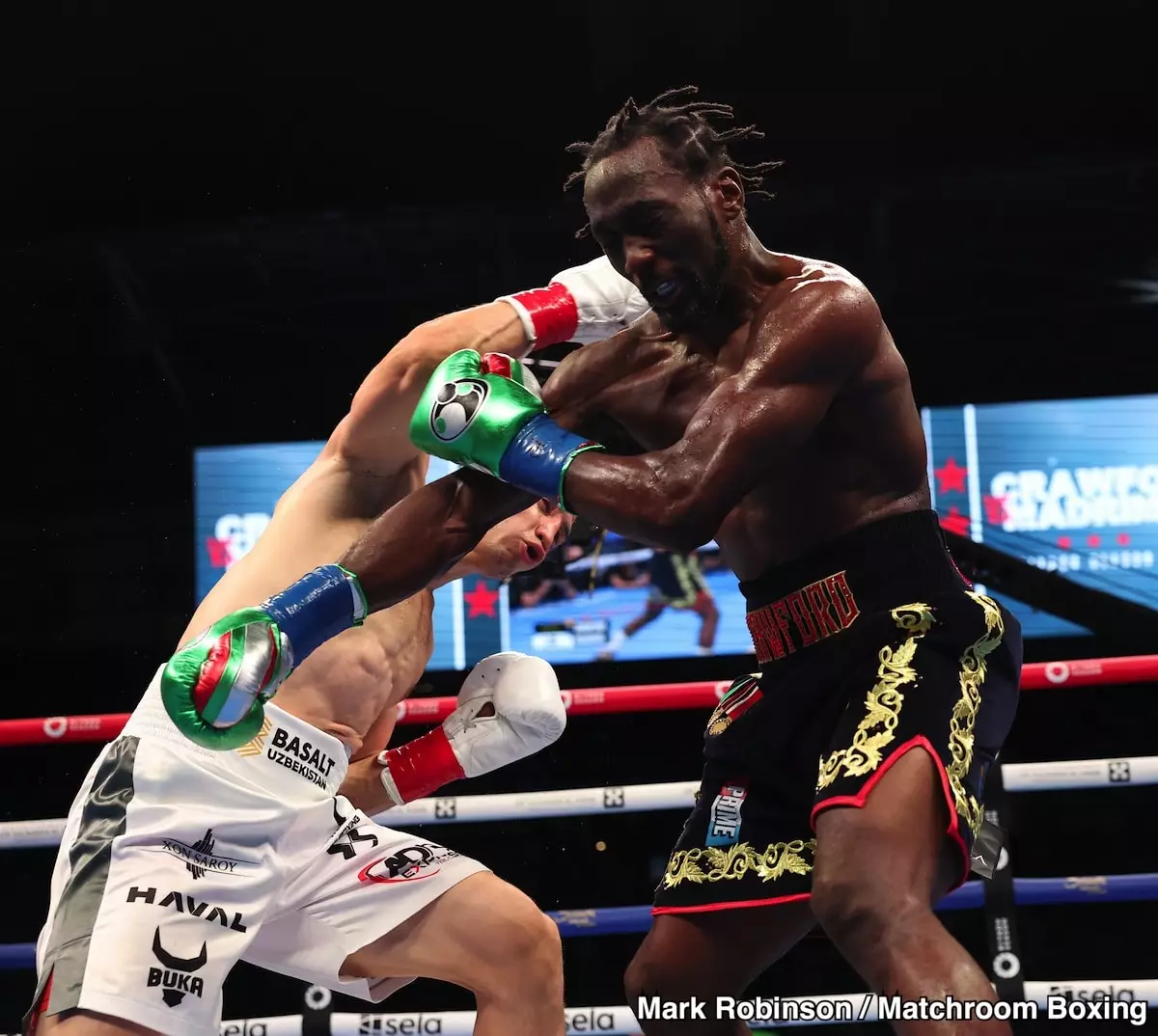As the fight between Canelo Alvarez and Terence Crawford approaches on September 13th, the boxing community finds itself at a crossroads, with views sharply divided on the motivations and implications of this highly publicized bout. Promoter Sampson Lewkowicz, representing David Benavidez, has been vocal in expressing his concerns regarding the matchup, hinting at an underlying narrative that questions the integrity of the sport itself. This situation raises pertinent questions about the nature of modern boxing: is it more about the sport or simply a transaction driven by financial gain?
Lewkowicz’s reluctance to watch the fight stems from a genuine concern for the health and safety of his fellow fighter Crawford, who is inching closer to 38 years of age. For Lewkowicz, unequivocally, the stakes of this fight are underscored by the stark physical disparity between the two competitors. With Crawford stepping up two weight classes to face the much larger and powerful unified super middleweight champion Alvarez, the potential for injury looms large. This historical backdrop evokes previous instances in boxing where significant mismatches led to devastating consequences, such as the unfortunate fate of Amir Khan in 2016. Such instances amplify Lewkowicz’s trepidation and shine a light on the ethical ramifications of match-making practices in boxing today.
Crawford’s record of 41 wins with 31 KOs is impressive, yet his current form raises doubts. His subpar debut at 154, where he barely edged out Israil Madrimov, suggests that he may not be in peak condition heading into what Lewkowicz believes could be a fatal confrontation. The promoter’s aversion to what he categorizes as a mere “business” fight reveals a broader concern about the overall health of boxing as a sport. This leads to an unsettling conclusion: athletic prowess and competition may be sidelined by the allure of monetary gain as promoters chase profit over purity.
The notion that Canelo vs. Crawford is a “business fight” rather than a true sporting contest resonates with many seasoned observers of the sport. In a perfect world, for a title shot at 168 pounds, one would expect a fighter to prove their mettle against worthy opponents in that division first. Instead, Crawford’s move appears opportunistic, as he bypasses the rigorous vetting process that contenders are typically subjected to. This situation undermines the ethos of competition and raises questions about the integrity of fight promotions that prioritize profitability over genuine sporting merit.
Alvarez, standing at an impressive 62-2-2 with 39 KOs, has historically chosen his opponents wisely, often selecting matchups that pose minimal risk while maximizing financial reward. Lewkowicz’s remarks highlight a discontent that plagues the boxing community, as fans yearn for fights that showcase meritocracy instead of tactical match-making driven by financial motivations. It is as if the sport has devolved into a spectacle dictated by what makes the most money rather than what would be most insightful for the sport’s legacy.
The ramifications of such matchups extend beyond just the fighters involved. A Canelo vs. Crawford fight could set a concerning precedent for future contests, steering the sport down a troubling path where lucrative offer trumps rightful competition. This could perpetuate a cycle where fighters opt for safer, financially motivated options instead of risking their records and legacies against top-tier opponents.
Moreover, if this trend continues unchecked, it could alienate a significant portion of the fanbase that values the spirit of competition and the true essence of boxing. As viewers become aware of the motivations behind these matchups, they might become disenchanted, leading to dwindling support and attendance.
The Canelo Alvarez vs. Terence Crawford bout encapsulates a pivotal moment in boxing history—one fraught with questions about athlete welfare, sporting integrity, and the relentless pursuit of profit. As this fight looms, the boxing world watches closely, hoping for a moment that transcends business and returns to the roots of what makes sports compelling—true competition for honor, respect, and proudly contested titles.


Leave a Reply